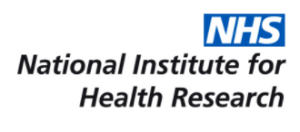In an extensive survey, more than half of the nurses from hospitals (54%) and nursing homes (53%) indicated that they do not have enough time to give medication. MedEye conducted this survey on medication safety during the Nursing Experience Congress held in the Netherlands in December 2018 amongst more than 500 nurses.
Administration of drug is the most critical moment
The majority (90%) of the nurses indicated that they are disturbed regularly during the process of medication administration. Disruptions during this complex process can lead to mistakes. The administration of a medicine is in fact the most critical moment in the medication distribution process, because afterwards errors can only be repaired by an alert patient. Research shows that in situations in which the patient is unable to recognize and / or intervene with errors, this last check* disappears. Nearly three-quarters of hospital nurses indicated that they sometimes make mistakes.
Administration errors still a problem
In healthcare, medication administration errors are still a problem. Other medication errors, such as transcription and prescription errors, have been reduced since 1 January 2014 due to the introduction of the Electronic Prescription Directive. As of that date, care providers and prescribers of medicines, such as doctors, dentists, midwives and nurses, had to prescribe medication electronically in the Netherlands. However, delivery errors are not yet sufficiently under control. Despite the introduction of the VMS theme High Risk, which focuses on the human double check of high-risk medication, research shows that more than a quarter of the nurses in hospitals and nursing homes do not always carry out this second check.
Stress during administration
The survey also showed that more than 65% of nurses experience stress during medication administration. Earlier, the V & VN nurses association held a survey ** among more than a thousand nurses, which showed that high work pressure regularly leads to errors. And that making a mistake results in sleepless nights for nurses, even if the error did not cause any harm to the patient. The study was repeated with nearly 17,000 members of Nurses & Caregivers in the Netherlands. Results of that study were published last January and showed that 69% of respondents indicated that the workload has increased even further in the past year.
Nurses can discuss mistakes in their organization
If an error is made with the medication, 88% of all nurses indicated that this can be discussed in the organization. The vast majority (> 80%) of nurses in hospitals and nursing homes indicated that they would like to have access to technology that supports them in the safe administration of medication.
* 1 Gossen SA, van den Bemt PMLA, Brouwers JRBJ. Fouten bij de toediening van geneesmiddelen. Pharm Weekbl 2001;136(38):1428-33.
2 van den Bemt PMLA, Egberts ACG. Drug-related problems: definitions and classification. Eur J Hospital Pharm Pract 2007;13(1):62-4
**https://zorgnu.avrotros.nl/uitzending/04-10-2016/gevolgen-van-een-hoge-werkdruk-verpleegkundigen/
***https://www.venvn.nl/Portals/1/Downloads/Rapport%20Arbeidsmarkt%202019.pdf


















